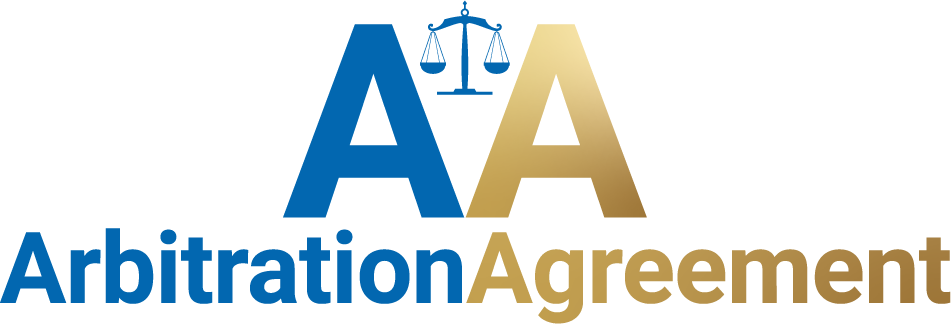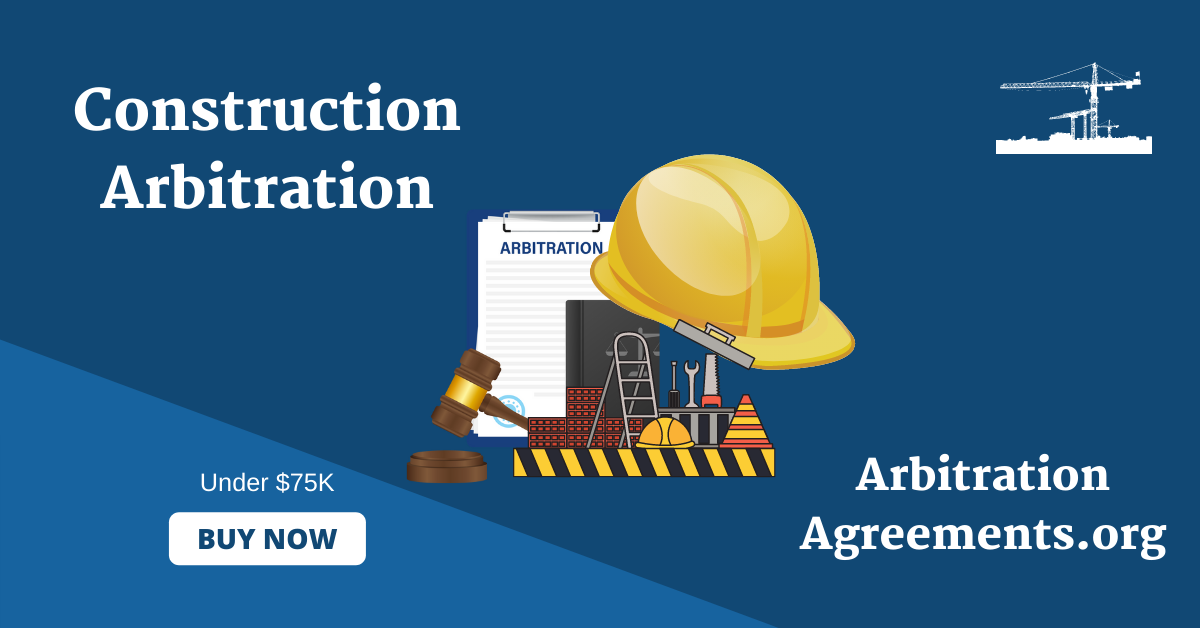The Process of ADR Arbitration
ADR arbitration refers to an out-of-court resolution for any sort of legal dispute. Oftentimes, disputing parties must arbitrate based on terms in a contract or agreement. A contract/agreement can feature clauses and provisions that enforce arbitration. ADR stands for "alternative dispute resolution." Arbitration is the most popular type of ADR. Mediation is another form of ADR that many disputing parties use. Also check Forced Arbitration.
Arbitration creates an out-of-court binding resolution between disputing parties.
Each dispute gets resolved by an impartial third party called an “arbitrator.” Or, a panel/tribunal of arbitrators will preside over hearings like a courtroom judge. So, why do so many disputing parties in the US (and world) prefer arbitration? It comes down to time and money. ADR arbitration saves parties both of these crucial resources.
Please continue reading to learn more about arbitration and ADR.
If you have any questions, do not hesitate to contact our association. We specialize in all aspects of ADR and arbitration. Our experts can help you with any arbitral process.
What Is ADR Arbitration?
We provide Full-Scale Arbitration Services. Think of ADR arbitration as an adversarial process. A neutral third party (the arbitrator) has the power to decide outcomes for each dispute. Arbitration’s the preferred process of resolving legal conflicts by many parties. That’s because parties can avoid expenses, delays, and acrimonies. The average party in formal litigation (or a court trial) will, most often, experience these. Some ADR arbitration disputes get resolved by a single arbitrator. Otherwise, a panel of arbitrators will oversee each ADR dispute.
Say that two parties decide to submit a dispute toward arbitration. The parties must agree to adhere to an arbitrator’s future decision. That decision refers to the official arbitration “award.”
An ADR award gets provided once both sides present witnesses and evidence.
Each award functions in the same manner as a contract between two parties. This means that an ADR award has legal binding status. A court will almost always confirm an arbitration award. It’s very rare for an award to get vacated by a court. Once an award gets confirmed, each court enters it as an official, binding judgment. Check this: Sample Arbitration Clauses.
The Advantages of Arbitration & ADR
Arbitration and ADR hold many advantages over standard court litigation. In fact, there are many pros to arbitration that you will not find within other types of ADR. (Such as mediation.) Arbitrating parties must work together in a peaceful manner. This way, they can structure a binding resolution that’s beneficial for both parties.
That’s why arbitration often avoids the hostility and anger associated with litigation.
Here is another key ADR advantage. It's that arbitration is less formal and more flexible than litigation processes. This leads to it saving disputing parties both money and time. Unlike court trials, parties have the freedom to schedule hearings when they please.
They don't have to adhere to the rigid structure of court proceedings. ADR and arbitration feature simplified rules of procedure and evidence. (Compared to standard court trials.) Many people complain about how complicated the rules of evidence are in litigation. The majority of those rules do not apply in ADR and arbitration.
One key reason is that the right to discovery gets limited through ADR processes.
In fact, many arbitration agreements limit the right to discovery on their own. Or, an arbitrator will go out of his or her way to reduce the impact of discovery. ADR and arbitration also feature limited grounds for judicial review. This way, each arbitration award can maintain complete binding status. Thus, parties do not have to risk dealing with a lawsuit after arbitration concludes. Also, the arbitration (and ADR) process is confidential and private. Unlike court litigation, the information revealed in hearings does not become public. Visit The Arbitration Process.
How the Arbitration & ADR Process Functions
Let’s go over the basics of how arbitration and the ADR process function. A claimant submits a demand for arbitration to begin the ADR process. This can also take place through court order or stipulation to arbitrate. Next, the opposing party (respondent) can file a response related to the claim. The parties then must secure an arbitrator or panel of arbitrators (the tribunal). This way, a neutral arbitrator can review evidence. The arbitrator will also listen to the parties’ arguments. At the end of the ADR hearing process, the arbitrator will provide an award. That award will feature legally binding status that every court will uphold. How To Use Arbitrate in a Sentence?
Parties in ADR often take part in pre-hearing conferences.
This way, they can figure out procedural matters related to the arbitral hearings. As an example, parties might discuss the level of privacy that the hearings should have. At the first arbitration hearing, the parties will provide opening statements. Then, evidence like documents will get presented before the arbitrator. Plus, witnesses will testify and get cross-examined. Oftentimes, ADR closing arguments take place during the final hearing. But they can get submitted afterward through a post-hearing brief. Once this happens, the tribunal or arbitrator will provide the award.
Each arbitration award features a written decision.
The chances of a review or appeal taking place (after an award gets provided) are slim. Strong evidence must exist that an arbitrator took part in misconduct or corruption. Check out Binding Arbitration Agreement.

What Is the Difference Between ADR & Arbitration?
There is no difference between ADR and arbitration. Instead, arbitration is the most popular form of ADR. (ADR stands for alternative dispute resolution.) Mediation is another common type of ADR. Arbitration functions as a legal non-court method to resolve a dispute. An independent ADR arbitrator gets appointed by the disputing parties. Then, the arbitrator makes a decision that’s both confidential and binding. Check out Insurance Arbitration Process.
What Does ADR Mean in Legal Terms?
ADR stands for “alternative dispute resolution.” This means that disputing parties have a legal option for resolving a disagreement. They do not have to go to court. Instead, they can take part in an ADR process. Most parties select arbitration as their ADR process. That’s because arbitrations can save parties time and money. Plus, each arbitration agreement has a legally binding status. That is not the case with other forms of ADR like mediation. In mediation, the mediator can only suggest an outcome for the disputing parties. But the mediator cannot enforce any outcome unless both parties agree to one. Read about Binding Arbitration Clause.
What Are the 4 Types of ADR?
Alternative dispute resolution (ADR) features four official classifications. The two most popular types of ADR are arbitration and mediation. The other two ADR types are negotiation and collaborative law. Please contact our organization if you’d like to learn more about the other ADR types. Must read Federal Arbitration Act.
Why Do We Need ADR?
ADR features many advantages that litigation and other legal methods cannot provide. The ADR process helps ensure the privacy of parties. That is not the case with public court proceedings. ADR also has a reputation for providing both commercial and practical solutions. That’s a key reason why so many companies in the US prefer arbitration. They know that ADR arbitration will protect their money, time, and privacy. Visit Mediation and Arbitration
What Is Non-Binding Arbitration?
Non-binding is a form of ADR like arbitration also is. In fact, the non-binding arbitration process functions like standard arbitration. But there is one key difference. The arbitrator’s award and the decision are not binding. This means that both parties have to agree to the award or decision.
Otherwise, non-binding arbitration will not resolve the parties’ dispute.
Non-binding arbitration works well for resolving business-to-business disputes. (And also less complex business-to-consumer disputes.) Why? Because non-binding arbitration functions like mediation. This means that parties can mediate throughout the non-binding process of arbitration. That way, they can discover a solution that compromises both opposing viewpoints. Check out Arbitration vs Mediation vs Litigation.
The Basics of Consumer Arbitration in ADR
Consumer arbitration is a popular form of ADR. Through this type of arbitration, businesses resolve disputes with their customers. Or, with consumers, patrons, or clients. The majority of consumer arbitration takes place due to a pre-dispute arbitration clause.
Many consumers will sign one before they receive a product/service from a business.
This is where mandatory contracts come into play. Many contracts and agreements feature a mandatory arbitration provision. A provision will demand that the parties must arbitrate in the future. (Only if a legal conflict takes place.) Many businesses prefer arbitration because it saves them time and money. Plus, it keeps the terms of each dispute out of the public arena. What Is Mandatory Arbitration?
Contact Us for Access to World-Class ADR & Arbitration Services
You now know the basics of ADR and arbitration. But it’s time that you consider taking advantage of their many legal advantages. And that’s where our association comes into play. We help all sorts of disputing parties find solutions through arbitration and ADR. We assist every type of party- from an individual to a Fortune 500 company.
You can learn more about our ADR services by browsing through this website.
Or, you can save time by picking up the phone and giving us a call. Our arbitration experts will answer your questions and provide you with resources. We look forward to serving as your go-to destination for any ADR or arbitration service. Must visit Arbitration vs Litigation.









